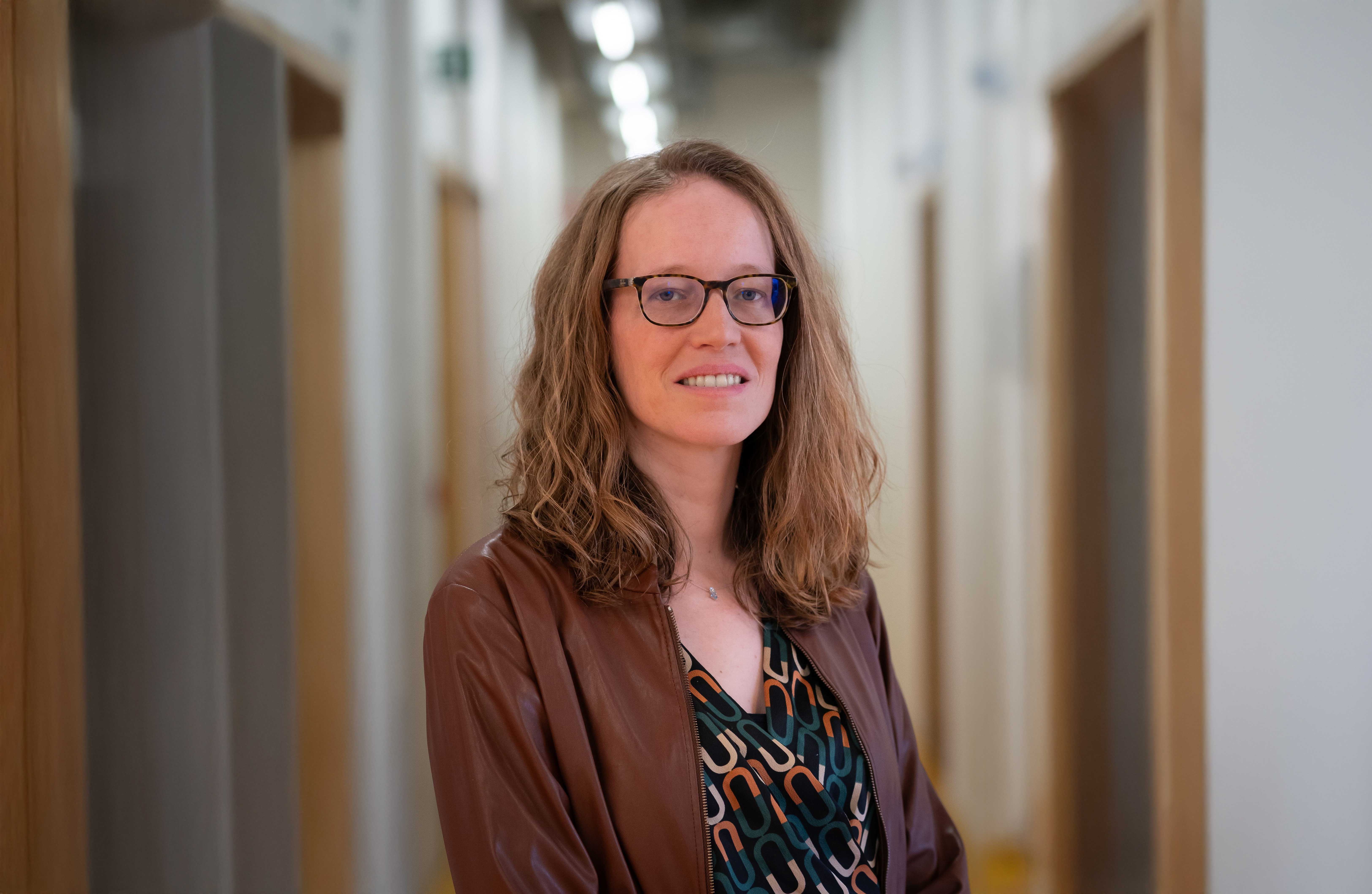FEMKE DE BACKERE // RESEARCHER // GHENT UNIVERSITY
»ENLIGHT has allowed me to further expand my network«
Femke De Backere is a dynamic associate professor at Ghent University's IDLab and senior scientist at imec, blending software engineering with cutting-edge healthcare research. With a passion for impactful innovation, she focuses on creating personalized, context-aware systems and engaging solutions like serious games. As an educator, she inspires future innovators through the Design Project course, while actively driving interdisciplinary collaborations within the ENLIGHT network to tackle real-world challenges.
 Image: Femke De Backere (portrait background edited with the use of AI by Diana Baehnisch)
Image: Femke De Backere (portrait background edited with the use of AI by Diana Baehnisch)
Why did you choose your field of research?
FEMKE: Ever since I was 14 or 15 years old, I knew that I wanted to study Computer Science because I had a strong interest in computers starting from a very young age. My current position as a professor gives me the opportunity to do what I truly love: teaching students software engineering, but also doing research in collaboration with other disciplines to create societal impact, mostly in the healthcare domain.
How did you find out about ENLIGHT?
FEMKE: In the past years, I was a member of the Board of Governors at Ghent University, which gave me the opportunity to see the unfolding of the ENLIGHT consortium up close. So, I was aware of the wide range of opportunities early on.
I still keep a close eye on the website and social media to be informed about any new initiatives and activities.
ENLIGHT gives me the opportunity to teach an interdisciplinary course, which is more difficult to achieve in our own study programs
Tell us about your participation in ENLIGHT.
FEMKE: I have been participating in ENLIGHT activities from the start. I have attended the ENLIGHT Teaching & Learning conferences with active contributions about my own experiences in challenge-based learning and with Design Thinking. This conference also allows me to learn from other educator’s experiences, something that would be more difficult without the ENLIGHT network.
The past three years I have been involved as a teacher in the summer school “Innovation Game: Applying Serious Game Design in Health Care”, organized through the ENLIGHT network, at Uppsala University. There, we use the Design Thinking methodology to guide the students from a healthcare challenge to a gamified solution or a serious game.
Recently, I have submitted two ENLIGHT proposals with three other universities, hoping to further set-up collaborations in the field of personalized serious games.
How would you describe your experience?
FEMKE: ENLIGHT gives me the opportunity to teach an interdisciplinary course, as we accept students from every discipline, which is more difficult to achieve in our own study programs. It is wonderful to see students learn from each other and bring their own skills and expertise to the table. Of course there are some challenges, but through coaching, the student teams come up with amazing results every year. Not only for them, but also for me, it is about adapting. With the teaching staff we sync our content and methodologies to elevate this course to the next level. This is not something that happens overnight, we prepare through online meetings throughout the year and improve the course based on the experiences and the feedback from the students from the previous edition.
Did participating in ENLIGHT grow your professional network?
FEMKE: Certainly! I have made new contacts within a couple of universities with researchers and educators that have the same (teaching/research) interests.
My activities in the ENLIGHT network have allowed me to further expand my network and to explore new research collaborations within the field of (personalized) serious games, through ENLIGHT calls such as the incubator grant and the ETN grant.
If you were to recommend ENLIGHT to a colleague, what would you say?
FEMKE: ENLIGHT gives you the opportunity to learn from your peers in other universities when it comes to future-proof higher education, but it also makes it easier to come into contact with other researchers and teachers, to set-up collaborations and learn from each other.
